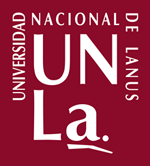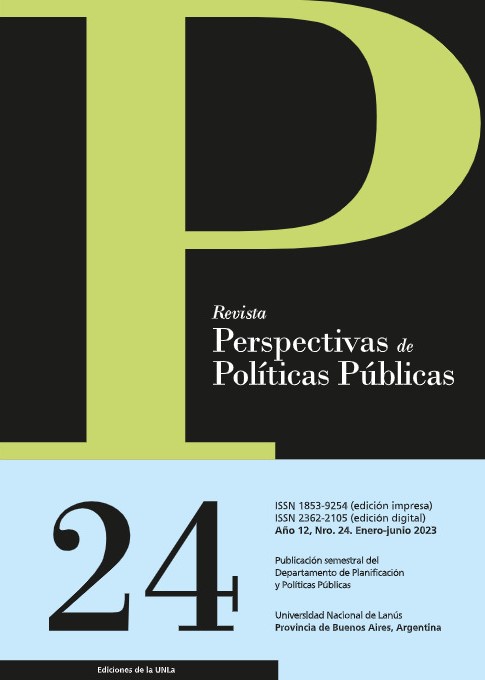Editorial
Abstract
This issue of the RPPP opens with two articles focused on the design and implementation of public policies at the municipal level, articles that are part of this growing current of concerns, while at the same time raising two separate debates interesting on many other issues little explored, or explicit, in the literature. A text by Carlos Miguel Segura investigates a little-explored dimension of the relationship between history and public policies, based on the specific cases of two municipalities in the province of Tucumán. He analyzes the possibilities and potential of the knowledge produced by historiography on local and municipal history to be used as a valuable tool in different stages of public policy processes. Then, the work of Micaela Florencia Comesaña, Sofía Ariadna González, Juan José Pintos Radice and Celina Brittez pays attention to the modes of articulation and incidence of the productive profiles of twelve municipalities in the center-south region of the province of Buenos Aires in the configuration of territorial problems, regulation of land use and implementation of urban-housing policies in the municipalities studied.
The tension between a “central tendency” approach and a “variance” approach is present in all areas of social policy. The article by Venetia Romagnoli on the multidimensionality of housing needs as the foundation of a comprehensive housing policy points out the contradictions between a centralizing conception that understands housing as a finished physical object associated with a plot of land, serially produced and standardized by construction companies, for anonymous recipients who do not participate in the process, and a comprehensive habitat policy that takes care of the existing diversity in the complex social construction of the housing need that certainly includes but is not reduced to housing as a physical object. María Victoria Deux Marzi analyzes the process of struggles, demands, negotiations, agreements, and confrontations for the institutional installation of an area of popular, social, and solidarity economy in Argentina and its articulation with the national economy as a whole and the variety of conceptualizations that receive each one of the voices -popular, social, solidary- that qualify the type of economy postulated by the social actors, the academics and the administrative elites that operate in this field.
The current debate in Argentina on the repayment conditions for the loan agreed in 2018 by the IMF and accepted in the 2022 renegotiation agreement and the restrictions that the indebtedness imposes on development and social improvement policies provides new evidence to the discussions that have been taking place. for decades around social policy. Concern about the supposedly inflationary and fiscally harmful effect of “social spending” even to alleviate the most harmful effects of the foreign debt policy, has as its counterpart the prioritization of interest payments on that debt. Since it would be politically dangerous to leave the demands of the most affected sectors without some type of response, from sectors of Latin American conservative politics the convenience of targeting policies arose and, in particular, the transfer of income conditional on the fulfillment of certain considerations for part of the receiving bras. The work of Marcelo Salas shows that, contrary to the general belief, it was not from the World Bank that these programs arose, but on the contrary, it was based on the experience of Chilean economists in the initial years of the Augusto Pinochet dictatorship and the structural transformation of the Chilean state. Sponsored and disseminated by the World Bank, the approach had a decisive influence on social policy in the region and continued with the democratic governments that, although they advanced in the incorporation of new concepts, maintained the base of temporary and compensatory programs typical of neoliberal logic.
The targeting of social policies, positive in itself beyond the fiscal reasons that motivated it, took place hand in hand with a notable boom in the programs and evaluation models of these policies and of the set of public policies, which soon walking became a highly valued area of professional expertise -to which the sharp pen of Noé Jitrik dedicated an unforgettable novel-. It is obvious that doing things well is just as important as doing things, but the meaning of “doing them well” is not always obvious for all the actors involved and in all the circumstances and scenarios in which they are done. Angélica Rosas Huerta discusses the process of institutionalizing the evaluation of public policies in Mexico, focusing the analysis on climate policy and in particular the evaluation of the policy implemented to mitigate greenhouse gas emissions, within the framework of institutional efforts to make evaluation a permanent ingredient of public policies.






